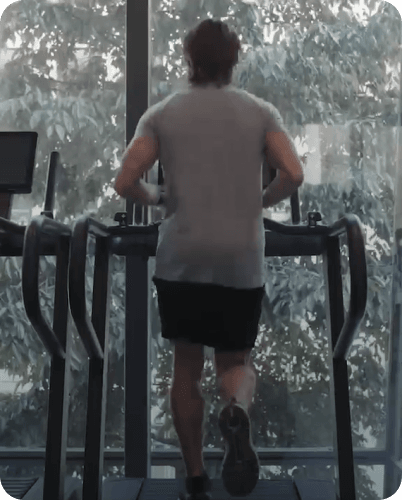PSM Interviews: Linia Patel

Claire Small
Chief Clinical Officer & Consultant Physiotherapist
- 13 June, 2017
- Diet & Nutrition
- 8 min read
PSM Interviews: Linia Patel
If you want to book an appointment with Lidia or one of our other dietitians, follow the link or call our Threadneedle Street clinic.
At no point was I surprised to hear that Linia Patel was appearing on BBC television. With her nutritional expertise, cool professionalism and balanced approach, my only question was, “Why aren’t there more people like Linia on TV?”. One of the first things that strikes you about Linia is her sharp intellect. She is educated to MSc level in both sports nutrition and public nutrition. Linia has a public health role and also works clinically as a Sports Dietitian.
Nutrition is a fundamental aspect of sports medicine and, I believe, one that is at times overlooked. Linia and I discussed a wide range of current issues, from sports supplementation to obesity, and hopefully, we myth-busted a few fads along the way.
When I spoke to Simon Lack, I asked him about his exercise routine. Of course, I’m going to be nosey about your diet. What do you like to eat?
Well, I have just come back from Italy, so I have been gorging on pizza and pasta, but I tend to eat healthily 80% of the time. I think that eating whatever you want around 20% of the time is a really healthy approach to diet. Taking healthy eating to the extreme can become an obsession, but equally, being too lenient obviously catches up with you in one shape or form. Healthy eating is certainly ingrained in me because of my background, but my indulgence? Triple-fried chips!
They are amazing… So how did you become interested in dietetics?
That’s a long story. Initially, I got a scholarship to study chemical engineering. Engineering wasn’t for me, but I loved chemistry, so I transferred to a BSc in biochemistry & medicinal chemistry. This provided my chemistry fix, but I wanted to work with people. I shadowed a variety of health professionals, but it was while I was with the sports dietician at the Sports Science Institute of South Africa and at the Red Cross Children’s Hospital in Cape Town that I found the buzz that I was looking for. I finally managed to connect my passion for science with my desire to help people. Of course, it helped that I am also a foodie and love cooking.
What does your public health work involve?
I dabble in various areas of public nutrition; however, an ongoing role is with the Islington and Camden Public Health Team. Working in public health means you look at the bigger picture – you work on the macro level with the aim of implementing Department of Health guidance at a local level. What are the nutritional priorities in our area? Do we need weight management programmes, improved education in schools or vitamin supplementation schemes? These are the sort of questions we face. Working clinically ensures that I don’t have my head in the clouds as a strategist.
But you are also a TV celebrity?
Haha, not at all! I am a spokesperson for the British Dietetics Association and have done a bit of radio work. It is just recently that I have been on television. I think TV is a great platform for evidence-based practitioners to get the right messages out there. There are lots of myths and fads, and it is about standing up and fighting them. I have worked with the BBC on a couple of programmes, including ‘Food: Truth or Scare’ and ‘The Future of Food’.
So, while we are on the subject of fads, what are the current trends, and what is your opinion of them?
There are so many fads, and I seem to spend my life fighting them. One persistent idea seems to be that if you eat gluten, then either you are going to blow up or the world is going to end. I think that we are self-diagnosing food intolerances. This can lead to people excluding major food groups. Sure, this might be ok in the short term, but in the longer term, it causes people to miss out on important nutrients.
Yes, I think that this can be particularly dangerous when parents do it with their children.
In the 1960s, there was a trend for parents to feed their children low-fat foods. We call them ‘cereal kids’. Parents gave their children bran flakes and skimmed milk because, at that time, it was thought to be healthy. This led to a whole generation with stunted growth because children weren’t getting the nutrients required for growth. Giving a child below the age of five a lot of fibre is also not a good idea because their stomachs are small, so they get filled up really quickly.
Is there anything in particular that you advocate in childhood nutrition?
It is important to instil good dietary habits early on because we know that these habits persist in adulthood. In fact, the issue even extends to maternal health. For example, we know that vitamin D deficiency during pregnancy predisposes a child to conditions such as multiple sclerosis, diabetes and cardiovascular disease. There is, therefore, currently a public health campaign to ensure that pregnant and breastfeeding mothers are supplementing themselves with vitamin D. Last year, Public Health England also advised that everyone in the UK needs to be on a vitamin D supplement from autumn to spring.
Are there any other mass supplementation programmes that you would support?
Actually, the two questions that I get asked most frequently are, “What supplements should I take?” and “What alcohol should I drink?”.
Haha, let’s come back to question two, then…
So, firstly, vitamin D: This is a fat-soluble vitamin, so it must be taken in the right form. D3 is the type that the body uses, so make sure you buy this one (vitamin D2 – biggest scam ever!) and ensure you take it when there is fat in your stomach. After dinner is generally a good time. The other supplement that I would probably take is omega-3. Now, the jury is still out on this. NICE guidance says that it does not make a clinical difference to cardiovascular risk, but it does crop up in my clinical practice. We take blood and look at the ratio of omega-6 to omega-3 as a marker of inflammation. Often, people with cardiovascular disease have up to 30 times the level of (pro-inflammatory) omega-6 than they do (anti-inflammatory) omega-3. This is because there is vegetable oil in absolutely everything we eat, but, as a nation, we are not fans of eating fish. But it is a balancing act, so before you start popping supplements, speak to your GP or a registered Dietitian or Nutritionist.
What is the role of supplements in sports?
There is definitely a place for supplements in sports, but you must ensure that you are taking the right one, at the right time and not just as a shortcut. I view nutrition as a staircase. You have to get the fundamentals right first. After optimising hydration and nutritional balance, you might consider organic/non-organic quality. Supplements come on top of that. They should add to your diet rather than replacing anything in it. The Australian Institute of Sport has developed an excellent system for categorising supplements based on evidence that links them to sporting performance. Of course, there are also placebo effects to consider. I make evidence-based recommendations and always advise athletes to seek supplements from factories with good manufacturing processes.
What about protein supplements?
There are many protein supplements out there, from the typical whey powder to recovery supplements that also contain some carbohydrates. There is no one-size-fits-all approach here. For example, after a high-intensity training session, a whey protein shake may encourage cellular muscle recovery. It depends on someone’s individual goals and what the rest of their diet looks like. Protein supplements are convenient but offer no additional benefit to consuming the same protein as food. In fact, you could argue that the food equivalent offers additional benefits to recovery in terms of, for example, antioxidant content.
For those unfamiliar with the work of a dietitian, what does a consultation generally involve?
The process starts before we meet the patient via a nutrition and health questionnaire. This should be returned at least 24 hours before the consultation, and allows us to plan any pre-assessment blood tests. For weight management, I make recommendations on protein, carbohydrate and fat intake, but sometimes things are more complex. If I am interested in someone’s calcium or magnesium intake, I run a more detailed nutritional analysis. An example could be in disordered eating, where it is particularly useful to have objective, visible results that I can show to the patient. My consultations have a strong focus on nutritional education and coaching to help patients understand the basis of my advice and the practicalities of following it. I also give out labels, pictures and recipes to help guide people when they are out buying groceries.
Now, let’s talk a bit about overnutrition and undernutrition. Firstly, the obesity crisis. What is the responsibility of the individual vs. the wider society?
The first thing to remember is that obesity is multi-factorial, so there is no single solution. The individual definitely has a role to play, but legislation and policy help create an environment for healthy eating and inform individual choice. One recent strategy has been the sugar tax. It is currently voluntary but may become mandatory by 2020. I think this is a move in the right direction, but it’s not the be-all and end-all. Improving public awareness and education is crucial.
An important aspect of the sugar tax is to ensure that companies do not simply pump their products full of non-nutritive sweeteners. Otherwise, there will be no change in the taste perception. Yes, it is great that there are no calories in your can of Coke, but does this mean that you will still buy your doughnut? Non-nutritive sweeteners can be up to four times sweeter than sugar!
In the sports setting, we sometimes encounter the female athletic triad and bone health issues. What should we be looking out for from a nutritional perspective?
This is definitely becoming more of a problem. Stress fractures make up the second largest part of my workload, after weight management. The problem comes when the body is expending energy, but you are not putting enough fuel in. Reproductive processes tend to shut down first, and, as a result, we see stress fractures. The best approach to this issue is a preventative one: if our patients are running marathons, just ask them what their fuelling is like. How are their energy levels? What about recovery? If we catch the people who are not bouncing back after training and improve their sports nutrition, this might reduce the long-term consequences of poor bone health.
How reliable is our appetite as a guide to maintaining energy balance?
Not very reliable. As with any eating, appetite can be switched off. I prefer to go with energy and recovery levels. Signs of poor immune system function, like recurrent colds, can also be an indicator of undernutrition.
What about mood? Does what we eat affect how we feel?
Carbohydrate, protein and vitamin D intake all affect our moods. Sugar boosts serotonin levels, but this is quickly followed by a slump. So while carbohydrates do help, it is about eating whole grain, low-glycaemic index food. There are myths about chocolate improving mood, possibly due to its magnesium content. I’m all for dark chocolate, with a cocoa content above 75%. It’s full of antioxidants but tends to be less popular due to its low sugar content.
Finally, back to the alcohol… How do you respond when people ask you what they should drink?
It’s an interesting one. There is no one drink that is better than the others, so drink the one that you want. Red wine is not necessarily better for your heart; there is a lot of PR linked with that. The key is how much alcohol you drink and when you drink it. Recently, the safe alcohol limit was reduced to 14 units per week for both sexes because the link to stomach and breast cancer is stronger than we thought. Having one alcoholic drink per day may be associated with a lower risk of cardiovascular disease in older people, but the effect is small. In general, you should stick to the guidance, avoid binge drinking and have a couple of dry days each week.
Thanks for talking to us, Linia!
Read some of Linia’s brilliant nutrition blogs here:

Advice
Over the last 20+ years our experts have helped more than 100,000 patients, but we don’t stop there. We also like to share our knowledge and insight to help people lead healthier lives, and here you will find our extensive library of advice on a variety of topics to help you do the same.
OUR ADVICE HUBS See all Advice Hubs

